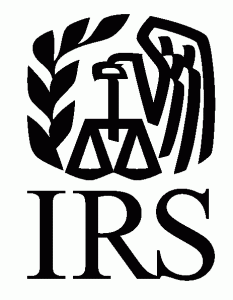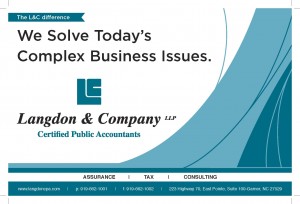2017 Tax Season Update/Reminders
by Tony Pandiscia
Updates to Important 2016 Income Tax Return Filing Deadlines:
- Individuals Tuesday, April 18, 2017
- C Corporations Tuesday, April 18, 2017
- Trust/Estates Tuesday, April 18, 2017
- Partnerships Wednesday, March 15, 2017
- S-Corporations Wednesday, March 15, 2017
HIGHLIGHTS OF FEDERAL TAX CHANGES
- The Standard Deduction amount for Married Filing Joint couples has increased by $100 for 2017 to $12,700; all other filing status standard deductions have increased by $50.
- The maximum annual “profit sharing” contribution limit for certain retirement plans has increased to $54,000 for 2017.
- The annual compensation limit for certain retirement plans has increased to $270,000 for 2017.
- The Social Security maximum earnings base for application of FICA tax has increased to $127,200 for 2017.
- The thresholds for each of the Individual Income Tax Brackets for 2017 have been increased slightly due to annual Cost of Living Adjustments.
- The gross income levels for which a 2017 income tax return is required have been increased to $ $20,800 (Married Filing Joint filers) and $10,400 (Single filers).
- Effective January 1, 2017, Business-related travel expense “standard mileage rate” has been revised to 53.5 cent per mile for business miles driven. The “standard mileage rates” for medical or moving expense purposes is now 17 cents per mile, but the rate for charitable activities remains unchanged at 14 cents per mile.
- Tax Exempt Organizations can now receive an automatic six-month extension of time to file using Form 8868 prior to the initial due date for their 2016 tax returns.
HIGHLIGHTS OF NORTH CAROLINA TAX CHANGES
- The standard deduction has been increased by $1,000 for married individuals who file jointly (or as “head of household”) and $500 for all other individuals.
- Effective January 1, 2017, many service businesses will now be subject to Sales & Use Tax collection and reporting when providing “repair, maintenance, or installation” services that are not “Capital Improvements.” In addition, a new exemption form has been issued for service businesses to qualify for a “Capital Improvement” exemption.
HELPFUL REMINDERS
- Charitable Contribution:
- Tax deductible contributions can be made in the form of cash or noncash but not “service” to a qualified 501(c)(3) organization. Out-of-pocket costs and travel expenses incurred may be subject to deduction.
- Any single donation larger than $250 to a “qualified organization” requires acknowledgement (or receipt). For noncash donations, fair market value assessment is the responsibility of the donor and if over $5,000, a certified appraisal is required.
- Reporting of Foreign Bank and Financial Accounts (FBAR):
- If you have a financial interest in or signature authority over a foreign financial account with overall value exceeding $10,000 at any time during the calendar year, you are required to file an FBAR. (As a protective measure, many of our clients file this report regardless of the threshold in order to run the statute of limitations for audit.)
- The annual due date for filing has been revised to April 18, 2017. All taxpayers will be granted an automatic six-month extension to October 15.
This is a summary of 2017 tax changes. If you have any questions regarding the details of the changes and how they may affect your specific situation, please feel free to contact us to discuss.
Tony ([email protected]) is the Tax Partner with Langdon & Company LLP. He is a CPA and also an attorney, advocating for clients on many levels-including with the State and the IRS.



 For many entrepreneurs, the biggest question they should ask themselves after deciding what kind of business they want to have is what kind of entity should the business be established as? This is very important since the choice they make can have a long-term impact on their profitability and security. This article will address some of the benefits of Incorporating a Sole Proprietorship into a subchapter
For many entrepreneurs, the biggest question they should ask themselves after deciding what kind of business they want to have is what kind of entity should the business be established as? This is very important since the choice they make can have a long-term impact on their profitability and security. This article will address some of the benefits of Incorporating a Sole Proprietorship into a subchapter 





 , as many as 70% of applicants are expected to be eligible to use this form, not only slashing the time spent by those charities in completing the application but also minimizing the time spent by the IRS in reviewing their files. The electronic filing requirement is also expected to increase the efficiency of the process. An application fee of $400 must be electronically submitted with the application as well.
, as many as 70% of applicants are expected to be eligible to use this form, not only slashing the time spent by those charities in completing the application but also minimizing the time spent by the IRS in reviewing their files. The electronic filing requirement is also expected to increase the efficiency of the process. An application fee of $400 must be electronically submitted with the application as well.
 According to an annual report, the Medicare Part A Trust Fund will be depleted by 2026. This is a two year improvement over last year’s forecast. The authors of the report credit the improvement to lower projected spending in most service categories, especially skilled nursing facilities.
According to an annual report, the Medicare Part A Trust Fund will be depleted by 2026. This is a two year improvement over last year’s forecast. The authors of the report credit the improvement to lower projected spending in most service categories, especially skilled nursing facilities.
 Governor McCrory signed one of the most sweeping NC state tax overhauls in years into law Tuesday.
Governor McCrory signed one of the most sweeping NC state tax overhauls in years into law Tuesday.